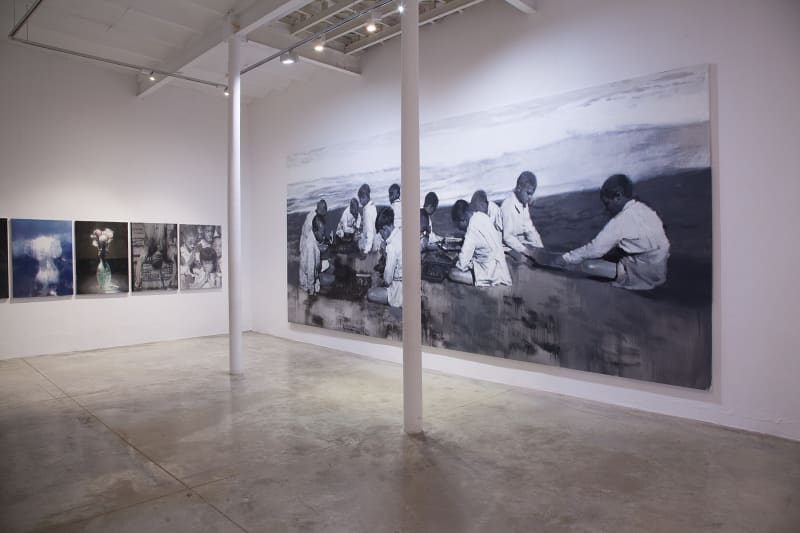Mundane: Axel Void | Delimbo Sevilla
Axel Void presents "Mundane", a poetic and philosophical essay translated into pictorial language.
Mundane means, "Belonging to the world," our understanding of its use is often used in a derogatory sense. This series aims to explore this characterisation, viewing daily life from an objective perspective to better understand and observe its beauty.
The exhibition adopts the premise of a visual essay, navigating seven key areas of metaphysical influence and its relationship to the man made constructs we adopt in regulating our lives. The seven themes can be read as follows; Knowledge and Belief, Context or Nature, Dialogue/We, Time, Identity Me or Ego, Social Constructs and Love.
Axel Void invites the viewer to explore Mundane through a series of paintings on canvas, animations and large scale installations.
AXEL VOID
Miami, 1986
Axel Void (Alejandro Hugo Dorda Mevs) was born in Miami in 1986 to a Haitian mother and a Spanish father. He was raised in Spain from the age of three, where he was strongly influenced by classical painting and drawing. Axel Void has been in contact with graffiti writing since 1999. He studied Fine Arts in Cádiz, Granada, and Sevilla, and based himself in Berlin until moving to Miami in 2013, where he currently resides.
Axel is a multimedia artist driven by a passionate interest in the art of storytelling. Inspired by truth in all is forms Axels compositions are presented with almost journalistic intrigue. With a focus on people as part of a global community he explore the cultural and social structures which regulate our interactions and habits. The ordinary is elevated through his passionate reimagining and whether disturbing or whimsical all compositions exist in search of a journalistic journey towards truth. Through paint, photography, sculpture and video installation, Axel's characters ascend to metaphors for the human condition; mourned or celebrated as they are contextualised through our collective memory.


